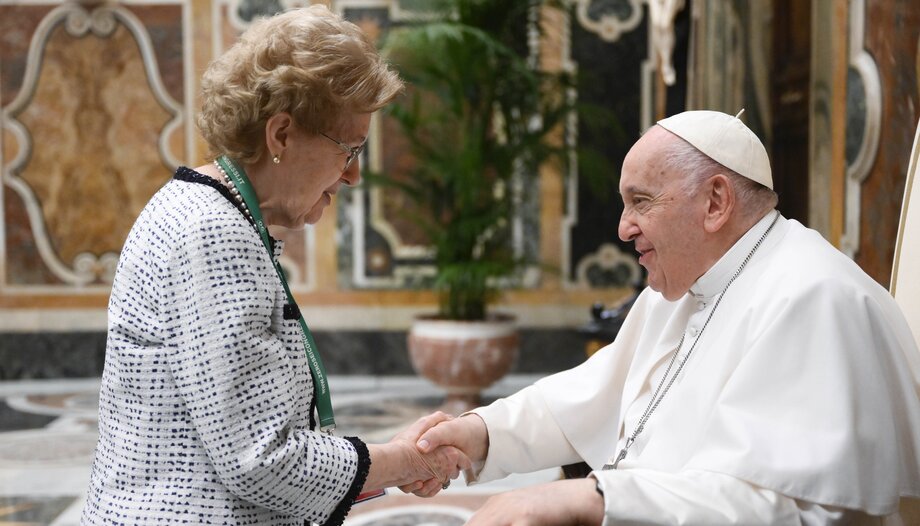Some of the most committed women at the ecclesial level are precisely the ones who have broken down all doubts, if there were any: on the road to the Synod, the feminine universe has found its space to listen and share. Some examples? Let us begin with the epoch-making decision taken by Pope Francis to extend participation in the synodal assembly, scheduled for next October at the Vatican, to religious, consecrated and lay people, half of whom must be women. All will have the right to vote, like the bishops. Nadia Coppa, president of the International Union of Superiors General (UISG), judged the election positively surprising, underlining that "it enriches the ecclesial dynamism, showing all the richness of our diversities that are expressed in multiple charisms".
And then we have Anna Maria Tarantola, president of the Centesimus Annus Pro Pontifice Foundation, who frames this choice in a broader project of valorization of women in the Church initiated by the Pope since the beginning of his pontificate. "It is one more step," she says, "which has given me great emotion. It is a recognition that women can make their contribution in areas apparently distant to them." Theologian Simona Segoloni also speaks of great openness and innovation. The professor, vice-president of the Coordination of Italian Women Theologians and professor at the John Paul II Theological Institute in Rome, says with satisfaction that this "was a decision that was long awaited. Now it is understood that the Synod of Bishops does not refer only to the bishops, but represents the whole Church. One could say: it was about time".
In the Church, the role of women has increased
In their long conversation with Omnes, the three women do not limit themselves, however, to focusing on the Synod, noting that the feminine contribution has been and will be fundamental: they also extend their reflection to the changing role of women in the Church. All three start from a common and shared point: with the pontificate of Pope Francis this role has grown in quantity and quality.
Sister Nadia Coppa uses a phrase pronounced in Manila in 2015 by the pontiff himself to make it clear how the growth of women in the Church is an unrenounceable assumption for FranciscoThe Pope had the courage to say that women know how to see things with different eyes than men. And then he added that women know how to ask questions that men cannot even imagine, because they have within them something extraordinary: the source of life. Women know how to keep dreams and the concrete together".
Appointments at the top: a sign of change
Concreteness, no doubt. A quality that also characterizes the election of the women recently appointed to head important Vatican institutions, such as the Governatorato and the Congregation for Bishops. "These are steps that indicate the end of discrimination and prejudice," says Professor Segoloni, according to whom "all this was by no means taken for granted. Now, however, it is necessary to consolidate this practice so that it becomes customary and institutionalized".
The future of women in the Church, Anna Maria Tarantola - who in the past held high positions in the Bank of Italy and in the Italian state radio and television, tasks previously unthinkable for a woman - sees it projected towards equality and inclusion, respecting the different roles: "In the encyclicals, women's participation in the Church has been a key element in the development of the Church. Laudato Sì and Fratelli Tutti - he concludes - Pope Francis has shown us the way: we must make our world more egalitarian and inclusive with concrete and feasible actions".









